The 2021 National Rural Housing Conference will include thought provoking Plenary Keynotes featuring national policymakers and other industry leaders! As we celebrate our 50th Anniversary, Keynotes will focus on and establishing a forward leaning agenda for the future of rural housing and community development.
Rev. Dr. William J. Barber, II
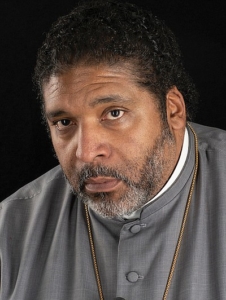
The Rev. Dr. William J. Barber II is the President & Senior Lecturer of Repairers of the Breach, Co-Chair of the Poor People’s Campaign: A National Call For Moral Revival; Bishop with The Fellowship of Affirming Ministries; Visiting Professor at Union Theological Seminary; Pastor of Greenleaf Christian Church, Disciples of Christ in Goldsboro, North Carolina, and the author of four books: We Are Called To Be A Movement; Revive Us Again: Vision and Action in Moral Organizing; The Third Reconstruction: Moral Mondays, Fusion Politics, and The Rise of a New Justice Movement; and Forward Together: A Moral Message For The Nation.
Rev. Dr. Barber is also the architect of the Moral Movement, which began with weekly Moral Monday protests at the North Carolina General Assembly in 2013 and recently relaunched again online in August 2020 under the banner of the Poor People’s Campaign. In 2018, Rev. Dr. Barber helped relaunch the Poor People’s Campaign, which was begun by Rev. Dr. Martin Luther King Jr. in 1968, starting with an historic wave of protests in state capitals and in Washington, D.C., calling for a moral agenda and a moral budget to address the five interlocking injustices of systemic racism, systemic poverty, the war economy and militarism, ecological devastation, and the false moral narrative of Christian nationalism. There are currently 45 state coordinating committees across the country, mobilizing around the Poor People’s Jubilee Platform and We Must Do M.O.R.E. (mobilize, organize, register, and educate people for a movement that votes).
On June 20, some 2.5 million tuned in on Facebook alone for the campaign’s Mass Poor People’s Assembly & Moral March on Washington, which originally was scheduled as an in- person event but switched to digital because of the COVID-19 pandemic. Thousands of others watched and listened on C-SPAN and other media.
A highly sought after, speaker, Rev. Dr. Barber has given keynote addresses at hundreds of national and state conferences, including the 2016 Democratic National Convention. He has spoken to a wide variety of audiences including national unions, fraternities and sororities, motorcycle organizations, drug dealer redemption conferences, women’s groups, economic policy groups, voting rights advocates, LGBTQ equality and justice groups, environmental and criminal justice groups, small organizing committees of domestic workers, fast food workers, and national gatherings of Christians, Muslims, Jews, and other people of faith. Rev. Dr. Barber spoke at the Vatican City, 2017 in response to Pope Francis’s Encyclic to the Bishops of the Church, “ENCYCLICAL LETTER LAUDATO SI’ OF THE HOLY FATHER FRANCIS ON CARE FOR OUR COMMON HOME” and on June 18, 2018 Rev. Dr. Barber spoke before the 5th Uni Global Union World Congress to more twenty-five countries during which time he was added to Black Achievers Wall in the International Slavery Museum in Liverpool, England. Rev. Dr. Barber has been conferred upon ten Honorary Degrees.
Rev. Dr. Barber served as president of the North Carolina NAACP, the largest state conference in the South, from 2006 – 2017 and severed on the National NAACP Board of Directors from 2008 – 2020. A former Mel King Fellow at MIT, he is currently Visiting Professor of Public Theology and Activism at Union Theological Seminary and is a Senior Fellow at Auburn Seminary. Rev. Dr. Barber is regularly featured in media outlets such as MSNBC, CNN, New York Times, Washington Post, and The Nation Magazine, among others. Rev. Dr. Barber was named one of 2020’s BET 100 Entertainers and Innovators, as a Social Justice Warrior and he is one of the 2019 recipients of the North Carolina Award, the state’s highest civilian honor. He is the 2018 MacArthur Foundation Genius Award recipient and Franklin D. Roosevelt Four Freedoms Award and 2015 recipient of the Puffin Award.
Secretary Macia L. Fudge, U.S. Department of Housing and Urban Development
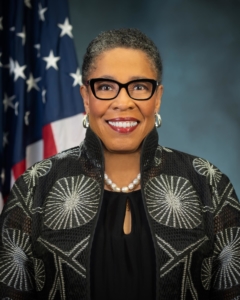
Secretary Marcia L. Fudge is the 18th Secretary of the U.S. Department of Housing and Urban Development.
Throughout her career, Secretary Fudge has worked to help low-income families, seniors, and communities across the country.
Secretary Fudge served as U.S. Representative for the 11th Congressional District of Ohio from 2008 to March 9, 2021. She was a member of several Congressional Caucuses and past Chair of the Congressional Black Caucus. As a Member of Congress, Secretary Fudge earned a reputation of tackling the unique challenges of her district by working with her Congressional delegation and across political ideologies.
In 1999, Secretary Fudge was elected the first female and first African American mayor of Warrensville Heights, Ohio, a position she held for two terms. As mayor of Warrensville Heights, Ohio, she adopted one of the first vacant and abandoned property ordinances in the state. She worked with local officials to develop a taskforce to protect against predatory lending and she secured the inclusion of property maintenance grants in the Warrensville Revitalization Action Plan. Additionally, she brought new residential development to the city and addressed the city’s growing foreclosure crisis through the formation of a local partnership that helped residents maintain the financial security needed to buy or keep a home. As a former mayor, Secretary Fudge has seen firsthand the need for economic development and affordable housing. She prioritized improving the City’s tax base and expanded opportunities for affordable housing.
Secretary Fudge believes our housing issues do not fit into a one-size-fits-all approach. We need policies and programs that can adapt to meet a community’s unique housing challenges. She is committed to making the dream of homeownership – and the security and wealth creation that comes with it – a reality for more Americans.
Under Secretary Fudge’s leadership, the Department of Housing and Urban Development will work to eradicate the growing homelessness issue, put an end to discriminatory practices in the housing market, and ensure that our fair housing rules are doing what they are supposed to do: opening the door for families who have been systematically locked out for generations to buy homes and have a fair shot at achieving the American dream.
Secretary Fudge’s career in public service began in the Cuyahoga County Prosecutor’s Office, rising to the rank of Director of Budget and Finance. She earned her bachelor’s degree in business from The Ohio State University and law degree from the Cleveland State University Cleveland-Marshall School of Law. She is a Past National President of Delta Sigma Theta Sorority, Inc., and a member of its Greater Cleveland Alumnae Chapter.
Topic: Equity is a stated priority for the new Administration, including racial equity and equity for underserved and persistently poor rural areas. Secretary Fudge will share updates on HUD’s rural housing priorities, the historic levels of pandemic housing assistance, and the challenges and opportunities federal programs experience in serving rural places.
Secretary Tom Vilsack, U.S. Department of Agriculture
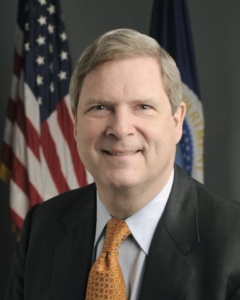
Thomas J. Vilsack was confirmed as the 32nd United States Secretary of Agriculture on Feb. 23, 2021 by the U.S. Senate. He was nominated by President Joe Biden to return to a role where he served for eight years under President Barack Obama.
Under Secretary Vilsack’s leadership, the U.S. Department of Agriculture is building back better by restoring the American economy, strengthening rural and historically underserved communities, responding to threats of climate change, creating good-paying jobs for American workers and the next generation of agricultural leaders, and investing in our kids and our families.
Secretary Vilsack is spearheading a transformation of the food system by creating more, better, and fairer markets and ensuring that the food system of today and the future is more resilient and more competitive globally. It will also offer consumers affordable, nutritious food grown closer to home.
From excessive drought to more extreme fires, our producers, farmers and ranchers are on the frontlines confronting the challenges associated with climate change. USDA is engaging the agriculture and forestry sectors in voluntary, incentive-based climate solutions to improve the resiliency of producers and to build wealth that stays in rural communities. Additionally, USDA is advancing investments in science and research to offer producers a toolbox to adapt to and mitigate climate change.
Secretary Vilsack continues to take bold, historic action to reduce barriers to access for historically underserved communities. By working to ensure all aspects of civil rights and equity are integrated, USDA is rooting out generations of systemic racism and building systems and programs inclusive of all USDA employees and customers.
Secretary Vilsack is also focused on ensuring Americans have consistent access to safe, healthy, and affordable food. USDA is investing in bold solutions that enhance food safety, improve the various far-reaching and powerful nutrition programs in the Department, and reduce food and nutrition insecurity in America.
Vilsack was the longest-serving member of President Obama’s original Cabinet. Prior to his appointment, he served two terms as the Governor of Iowa, served in the Iowa State Senate and as the mayor of Mt. Pleasant, Iowa. He received his bachelor’s degree from Hamilton College and his law degree from Albany Law School in New York.
Prior to returning to USDA, he served as president and CEO of the U.S. Dairy Export Council (USDEC) from 2017 until February 2021. There, he provided strategic leadership and oversight of USDEC’s global promotional and research activities, regulatory affairs and trade policy initiatives. In addition to his post at USDEC, he also served as a Strategic Advisor to Colorado State University’s food and water initiatives.
A native of Pittsburgh, Penn., Vilsack was born into an orphanage and adopted in 1951. After graduating from law school, Vilsack moved to Mt. Pleasant, Iowa, his wife Christie’s hometown, where he practiced law. The Vilsacks have two adult sons and two daughters-in-law—Doug, married to Janet; and Jess, married to Kate. They have five grandchildren.
Vilsack has been honored for his public service and work to advance American agriculture by several organizations, including the Congressional Hunger Center and the Global Child Nutrition Foundation. He is a former member of the board of directors for GenYOUth as well as Feeding America, a nationwide network of more than 200 food banks that feed more than 46 million people through food pantries, soup kitchens, shelters, and other community-based agencies.
Whip James Clyburn (D-SC)
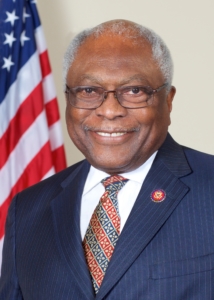
James E. Clyburn is the Majority Whip, the third-ranking Democrat in the United States House of Representatives, and currently serves as the Chairman of the House Select Subcommittee on the Coronavirus Crisis. He is also the Chairman of the Rural Broadband Task Force and Democratic Faith Working Group.
When he came to Congress in 1993 to represent South Carolina’s sixth congressional district, Congressman Clyburn was elected co-president of his freshman class and quickly rose through leadership ranks. He was subsequently elected Chairman of the Congressional Black Caucus, Vice Chairman, and later Chairman, of the House Democratic Caucus. He previously served as Majority Whip from 2007 to 2011 and served as Assistant Democratic Leader from 2011 to 2019.
As a national leader, he has championed rural and economic development and many of his initiatives have become law. His 10-20-30 federal funding formula was included in four sections of the American Recovery and Reinvestment Act and has been expanded to 18 accounts in recent years. Congressman Clyburn is also a passionate supporter of historic preservation and restoration programs. His efforts have restored scores of historic buildings and sites on the campuses of historically black colleges and universities. His legislation created the South Carolina National Heritage Corridor and the Gullah/Geechee Cultural Heritage Corridor, elevated the Congaree National Monument to a National Park, and established the Reconstruction Era National Monument in South Carolina’s Lowcountry.
Congressman Clyburn’s humble beginnings in Sumter, South Carolina as the eldest son of an activist, fundamentalist minister and an independent, civic-minded beautician grounded him securely in family, faith and public service. His memoir, Blessed Experiences: Genuinely Southern, Proudly Black, was published in 2015, and has been described as a primer that should be read by every student interested in pursuing a career in public service.
Congressman Clyburn and his late wife, Emily England Clyburn, met as students at South Carolina State and were married for 58 years. They are the parents of three daughters; Mignon Clyburn, Jennifer Reed, and Angela Clyburn and four grandchildren.
Topic: Whip James Clyburn has been a champion for areas of persistent poverty for decades and will be sharing his work to address the needs of persistently poor rural communities, and to advance rural affordable housing and community development.
Representative Maxine Waters (D-CA)
[/av_two_third]
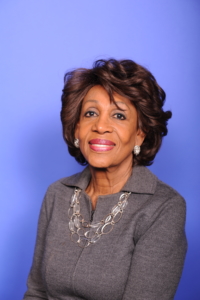
Congresswoman Maxine Waters is considered by many to be one of the most powerful women in U.S. politics today. She has gained a reputation as a fearless and outspoken advocate for women, children, people of color, the poor, veterans, and seniors. Congresswoman Waters has been dubbed “Aunty Maxine” by millennials who appreciate her advocacy and understanding of issues important to them.
Elected in November 2020 to her sixteenth term in the U.S. House of Representatives with more than 70 percent of the vote in the 43rd Congressional District of California, Congresswoman Waters represents parts of Los Angeles including the communities of Westchester and Playa Del Rey, the unincorporated areas of Los Angeles County comprised of Lennox, West Athens, West Carson, Harbor Gateway, El Camino Village, and Watts. The 43rd District also includes the diverse cities of Gardena, Hawthorne, Inglewood, Lawndale, Lomita and Torrance.
Congresswoman Waters made history as the first woman and first African American Chair of the House Financial Services Committee. An integral member of Congressional Democratic Leadership, Congresswoman Waters serves as a member of the Steering & Policy Committee and is the Co-Chair of the bipartisan Congressional Task Force on Alzheimer’s Disease. She is also a founding member of the Congressional Progressive Caucus, and member and past chair of the Congressional Black Caucus.
Topic: The past two years have been a historically busy time in Congress, and Chairwoman Maxine Waters has been a champion for housing – including rural housing – throughout the pandemic recovery and infrastructure negotiations. She will join us to share updates on her work and new available resources for rural housing.

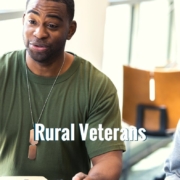
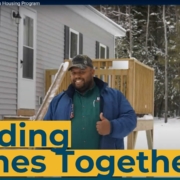
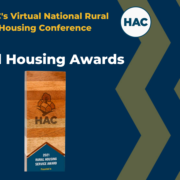
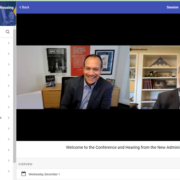 Housing Assistance Council
Housing Assistance Council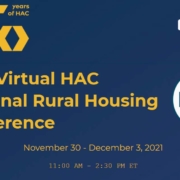
 Housing Assistance Council
Housing Assistance Council




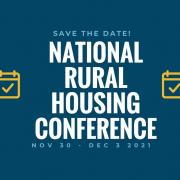
 “While the economy is strong overall, we recognize that some communities have yet to feel the full benefits of the ongoing expansion,” Powell said.
“While the economy is strong overall, we recognize that some communities have yet to feel the full benefits of the ongoing expansion,” Powell said.
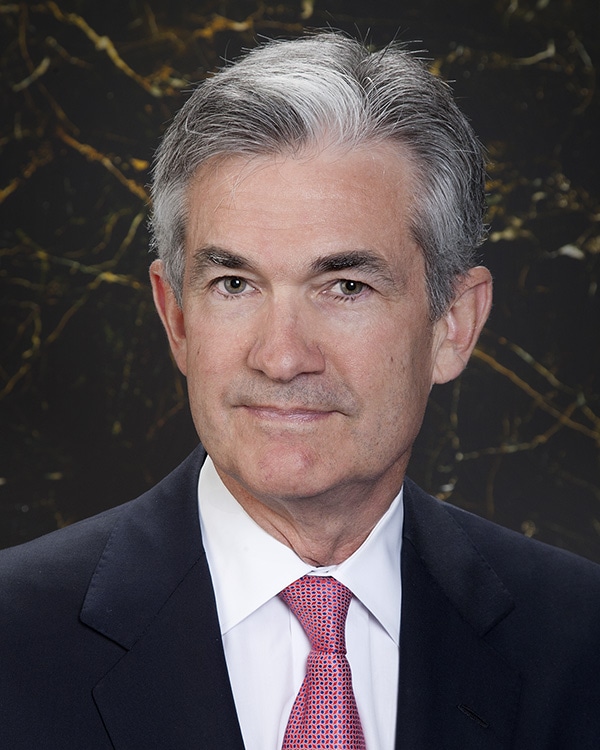 The Housing Assistance Council is pleased to announce that
The Housing Assistance Council is pleased to announce that